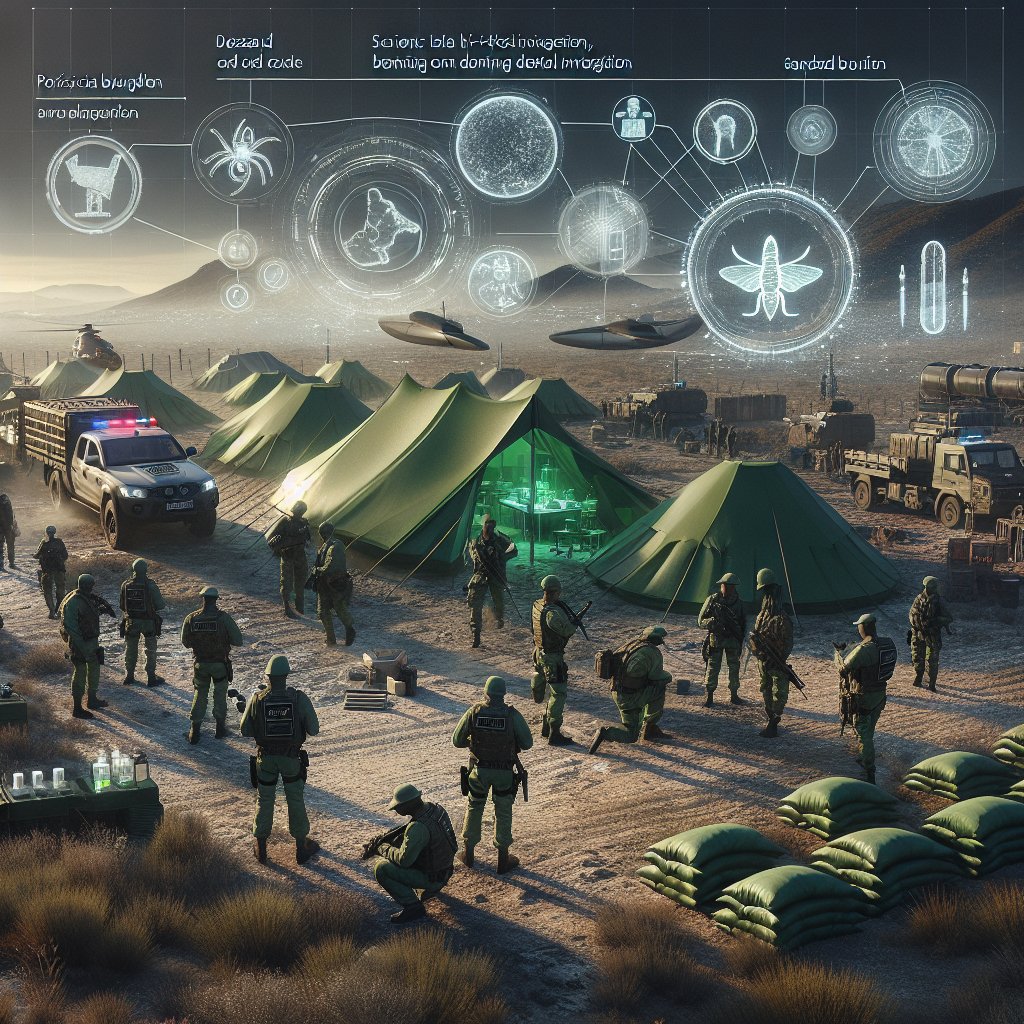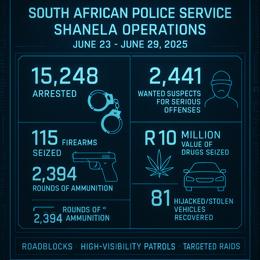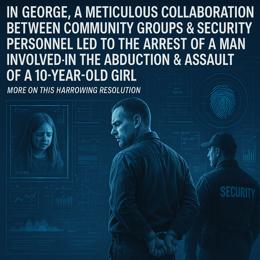Image created by AI
South African Police Detain 95 Libyans at Alleged Military Camp in Mpumalanga
The South African Police Service (SAPS) has taken into custody 95 Libyan nationals following a raid on an alleged secret military camp located within the provincial boundaries of Mpumalanga. This development poses critical questions about potential security threats as well as the enforcement of immigration regulations in South Africa.
During an early morning operation, SAPS officials descended upon the farm in White River, where they discovered what resembled a military base equipped with green tents and sandbags, contrary to the reported purpose of the site as a training ground for a security company. The owner of this company is reported to be a South African.
Authorities were quick to clarify that the individuals were being detained for questioning rather than facing immediate arrest – a move to ascertain the extent of any criminal activity. Police spokesman Donald Mdhluli noted the incongruity between the appearance of the camp and its stated function.
Concerns were amplified by national police spokeswoman Athlenda Mathe’s revelation that although the Libyans claimed to have entered the country on study visas to become security guards, the police investigation uncovered they may have been furnished with military training.
This incident arrives in a sensitive context, as Libya – fractured by its own internal conflicts and power struggles – scarcely resembles the nation that stood under Muammar Gaddafi’s rule before 2011. With a nation divided and sporadic bursts of violent confrontations, it's clear that the stability of Libya is volatile.
The ongoing investigation, led by the province’s commissioner, Major General Zeph Mkhwanazi, signifies the gravity with which this situation has been received by South African authorities. Major General Mkhwanazi’s office has assured the public that community safety is presently not at risk.
As the investigation proceeds, the SAPS is unwavering in its commitment to preserve the security and stability of the country. Analysts and observers will be monitoring closely to see what further findings come to light from this operation and how South Africa is positioned not just in its own security landscape but also in its response to international concerns around military operations and training within its borders.










